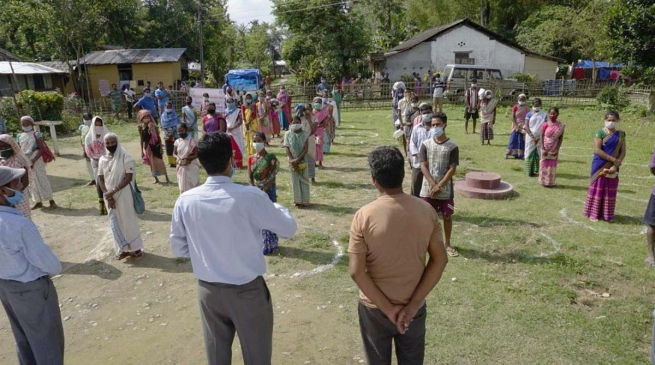Due to the lockdown, many citizens lost their jobs, while migrant workers were unable to return home to their families. Bosconet therefore intervened and began distributing kits containing rations of non-perishable food. A total of 780 families have been reached.
Temporary workers employed in tea plantations and daily wage workers were provided with ration kits to make sure they had food to eat.
Baralin Kharummind, one of the beneficiaries, said: “I live in a village which is located in a remote area. After the announcement of the lockdown in the Country, without work and without food at home, it was difficult to feed my family. I'm very grateful to 'Bosconet' for the support it has given to my family in this complicated moment. It is truly a blessing for us to receive rice, sugar, salt, oil, soaps and tea leaves. On behalf of everyone in my village, I would like to thank you.”
"Bosconet" has also helped disadvantaged children, young people and women across India by providing quality education and market-oriented vocational training. "Bosconet" has given support to those who have been affected by the coronavirus since the beginning of the lockdown. Whether it was raising awareness of virus prevention, distributing masks or making sure people had food to eat, Bosconet staff was at the forefront of providing help to those who needed it most during this difficult time... And it continues to be.
India represents the world's fourth largest economy, but over 22% of the country lives in poverty. About 31% of children, according to an Oxford Poverty and Human Development Initiative report, are a "multidimensional poor" child, that is, a child deficient in at least a third of the 10 basic indicators grouped according to three dimensions of poverty: health, education, and standard of living.
The Salesians who live and work in India have been carrying out programs and activities for hundreds of thousands of vulnerable young people for years. And this work continues unceasingly today.


